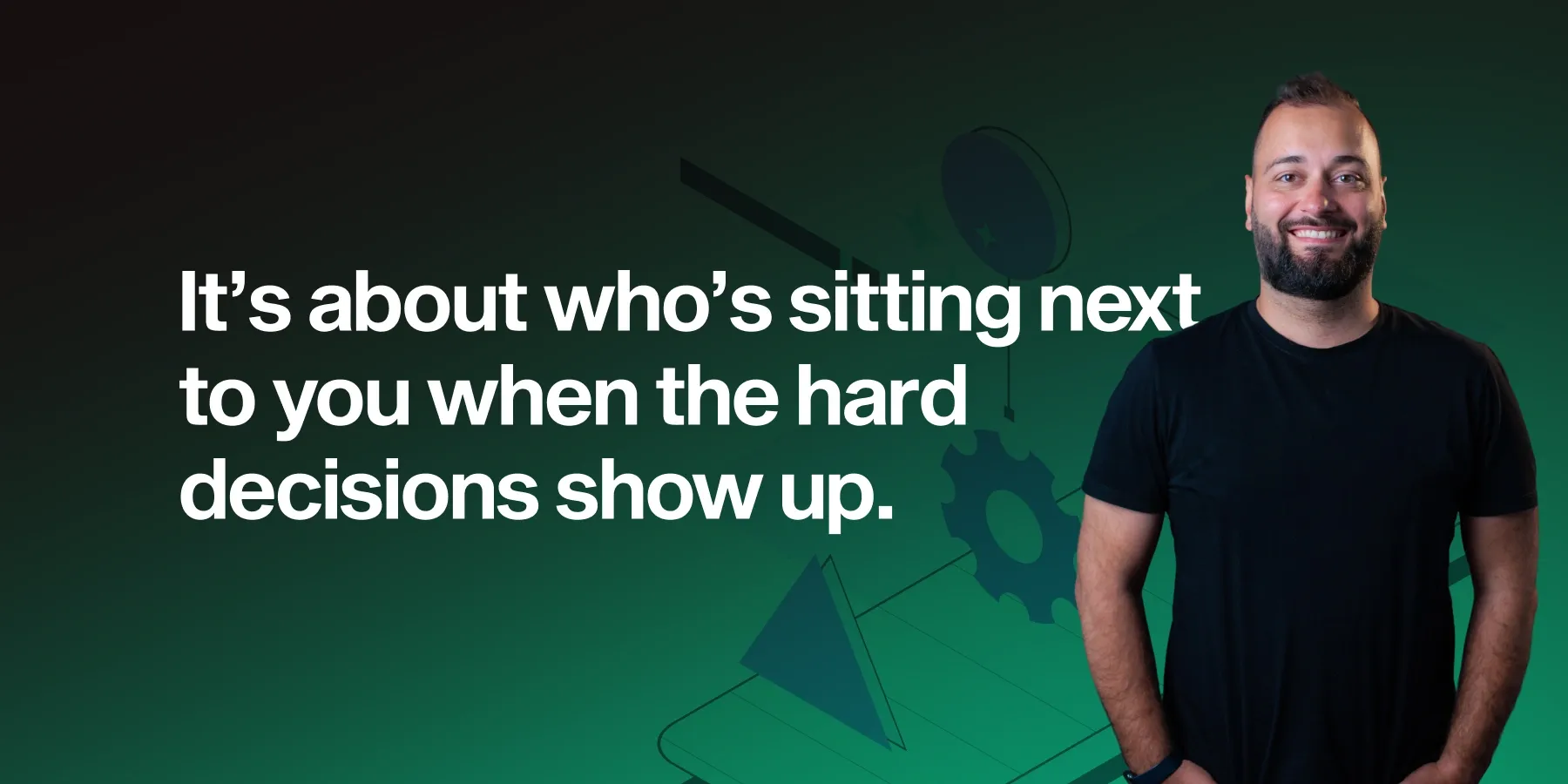What to Expect from a Strategic Product Partner (Buyer’s Guide)

Let’s not sugarcoat it: choosing a product development partner is a high-stakes decision.
You’re not buying a monthly SaaS license or picking out a new chair for the office. You're betting your startup's survival on someone else's ability to understand your vision, even when you're still figuring it out yourself.
And most founders get this wrong. They treat product partners like code vending machines. "Here’s our Figma file, here’s a Notion spec, go build it." But in today’s environment, that approach will get you nowhere fast.
The Game Has Changed – And So Should Your Expectations
Founders today have access to the same AI tools, the same cloud infra, the same low-code platforms.
The playing field has leveled. So your edge? It’s not about tools anymore. It’s about who’s sitting next to you when the hard decisions show up.
In today's market, your product partner should act more like a strategic co-founder than a hired gun, which changes what you should realistically expect from a strategic product partner in the first place.
What a Real Strategic Partner Looks Like:
They challenge your feature list, not just execute it.
If they don't ask you "What happens if we ship 50% of this?", that’s a red flag - because deciding what not to build is often more important than what makes it into the MVP.
Because great products aren’t built on feature wishlists, but ruthless prioritization that separates strong product discovery from expensive guesswork.
They think beyond sprint planning.
While you’re thinking about launch, they’re thinking about scale, infrastructure, security, retention loops, and what happens when things break - because they will.
They tell you your timeline is wrong - and then help fix it.
If you say “2 weeks,” they’ll give you 3. And not because they’re slow, but because they’ve seen how long things actually take when real life hits.
Must-Haves in 2025
AI-Accelerated, not AI-Delusional
They use AI to speed things up, but they don’t ship raw Copilot junk and hope for the best. They understand the code before committing it, instead of blindly relying on AI-generated output that creates long-term risk. That’s your shield from AI-generated technical debt.
Security From Day Zero
If your partner isn’t talking about auth, encryption, and GDPR from the start, they’re not your partner, they’re your risk.
Post-Launch Thinking
MVP isn’t the end, it’s the beginning of maintaining, iterating, and evolving a software product after launch. You need someone who helps you listen to user behavior, iterate fast, and stay aligned with actual usage - not just internal assumptions.
What to Avoid Like the Plague
The "Yes" Partner
If they agree to everything, run. You want pushback. You want friction. That’s how you avoid wasting time and budget.
The Ghost Partner
If they disappear for days on Slack, imagine how they’ll vanish when things get messy. And trust me, I've seen it first-hand: they will get messy.
The Feature Factory
If they never ask “why,” they’ll build you a bloated product nobody wants. Take it one sprint at a time.
The "That’s Not My Job" Partner
If they’re only in it for the invoice, not the outcome, you’re building with someone who’s already checked out.
Focus is the Differentiator in 2025
Your product with 5 laser-focused features will always beat a competitor with 25 half-baked ones. Your partner should protect your focus like it’s their own, because survival in a startup environment depends on disciplined execution and hard trade-offs.
Uber started as “tap a button, get a ride.” Airbnb was air mattresses on floors. Nobody starts with a platform. They start with something that works and grow from there.
Final Reality Check
In 2025, everyone has the same tools.
Your unfair advantage is not a tech stack, but the quality of decisions made between idea and product-market fit.
A great product partner helps you navigate those decisions with clarity, speed, and honesty. They don’t just build what you ask for. They help you figure out what’s worth building.
So if you're choosing a product partner right now, ask this:
“What would you cut from our MVP?”
If they don’t have a strong opinion, keep looking.
Because the best partners?
They’ll ask the hard questions before the market does.
Still got some questions?